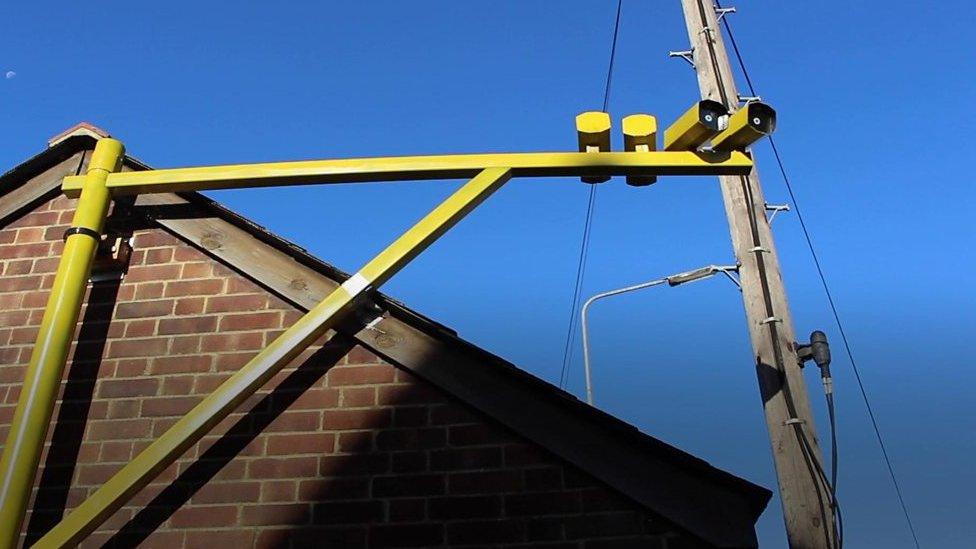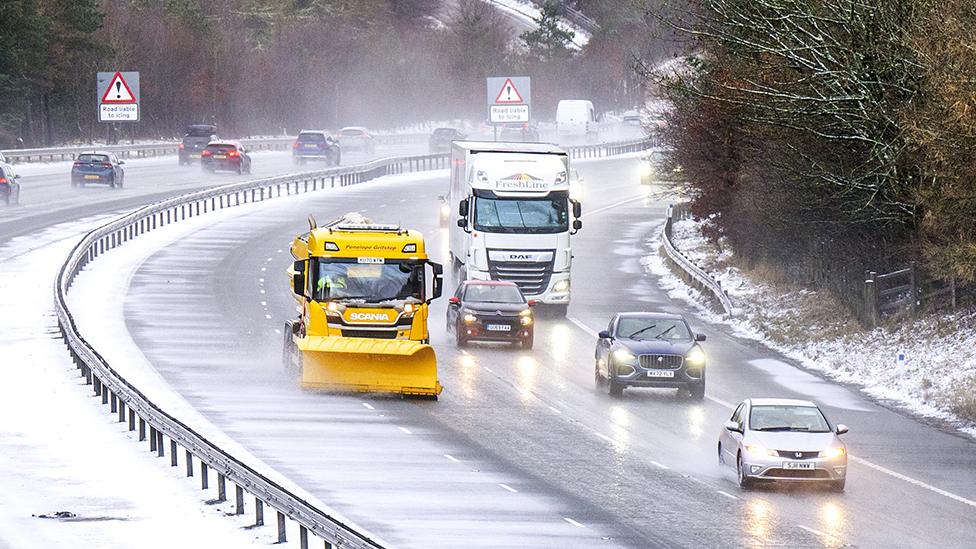High Garrett bird box 'speed camera' deters speeding motorists
- Published
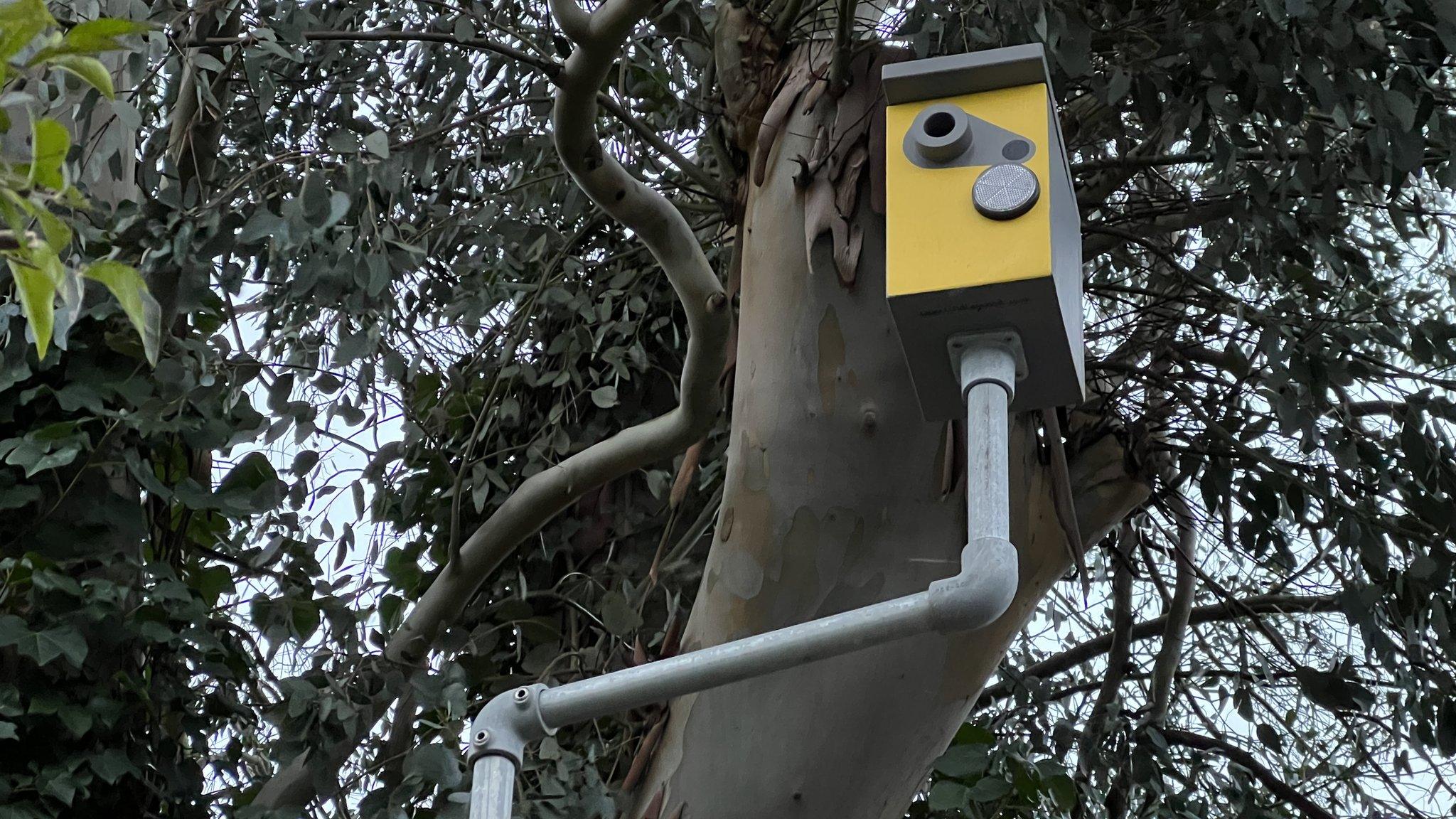
The dummy 'speed camera' has been built out of a bird box
A man who built his own "speed camera" out of a bird box says he is willing to do anything to make the road outside his house safer.
Nick Porter built and put up the device on the A1017 between High Garrett and Gosfield in Essex in December.
He said vehicles regularly reached speeds of 80 to 90mph - where the limit is 60mph and reduces to 40mph entering Gosfield and High Garrett.
"We don't feel safe here," Mr Porter told the BBC.
There have been several road traffic incidents in the stretch between the two villages in recent years, including one in 2014 when three people were killed.
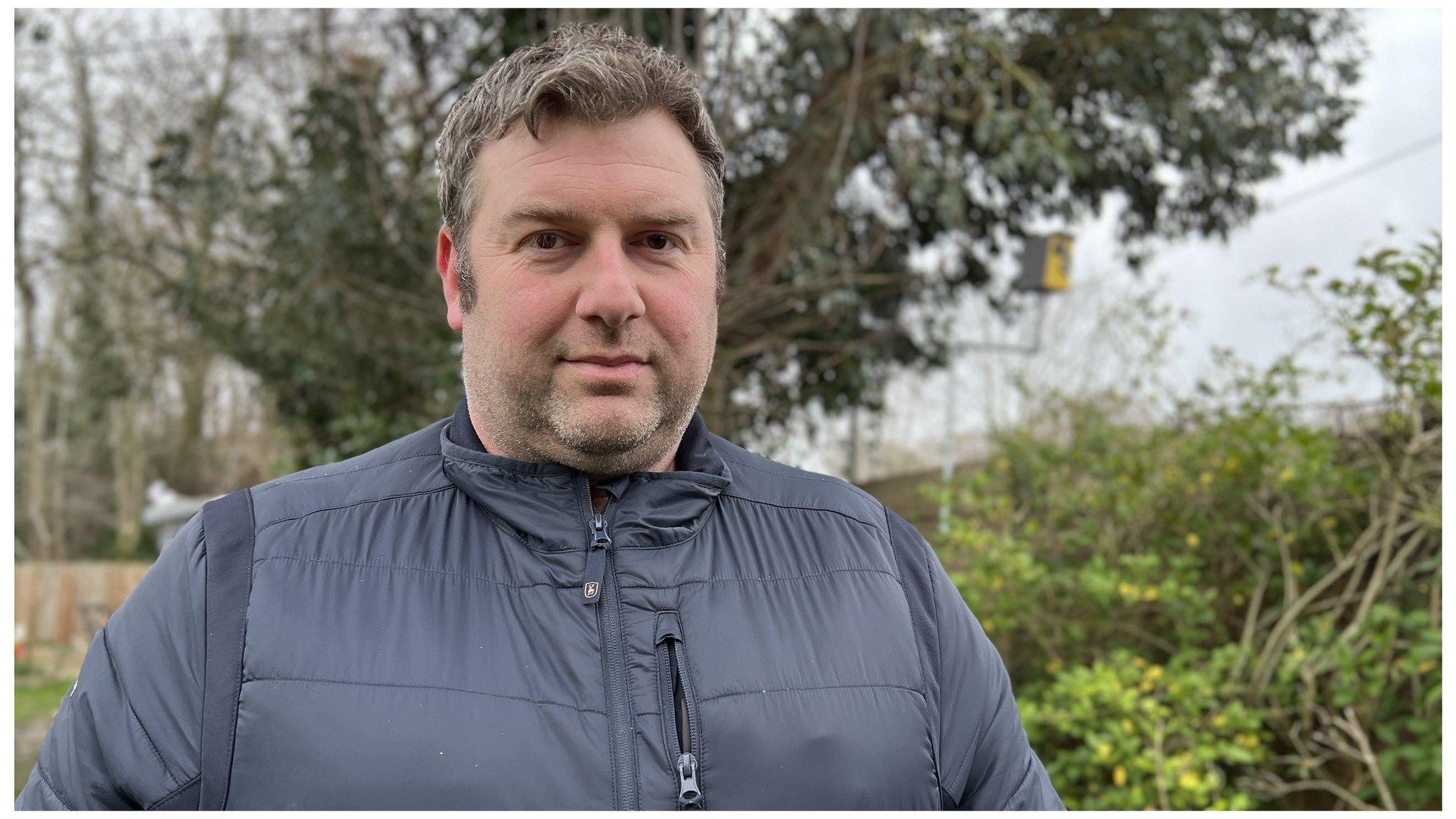
Nick Porter now drives his daughter to school instead of letting her wait by the road for the bus
Mr Porter says he and his neighbours had repeatedly asked for the speed limit to be reduced, including offering to pay for any signage, but had now taken matters into their own hands.
"I saw the bird box 'speed camera' idea online and it has worked," Mr Porter said.
"The traffic is noticeably a little bit slower now which is great, but once people realise it's not a proper speed camera, they'll just speed up again - but something needs to be done."
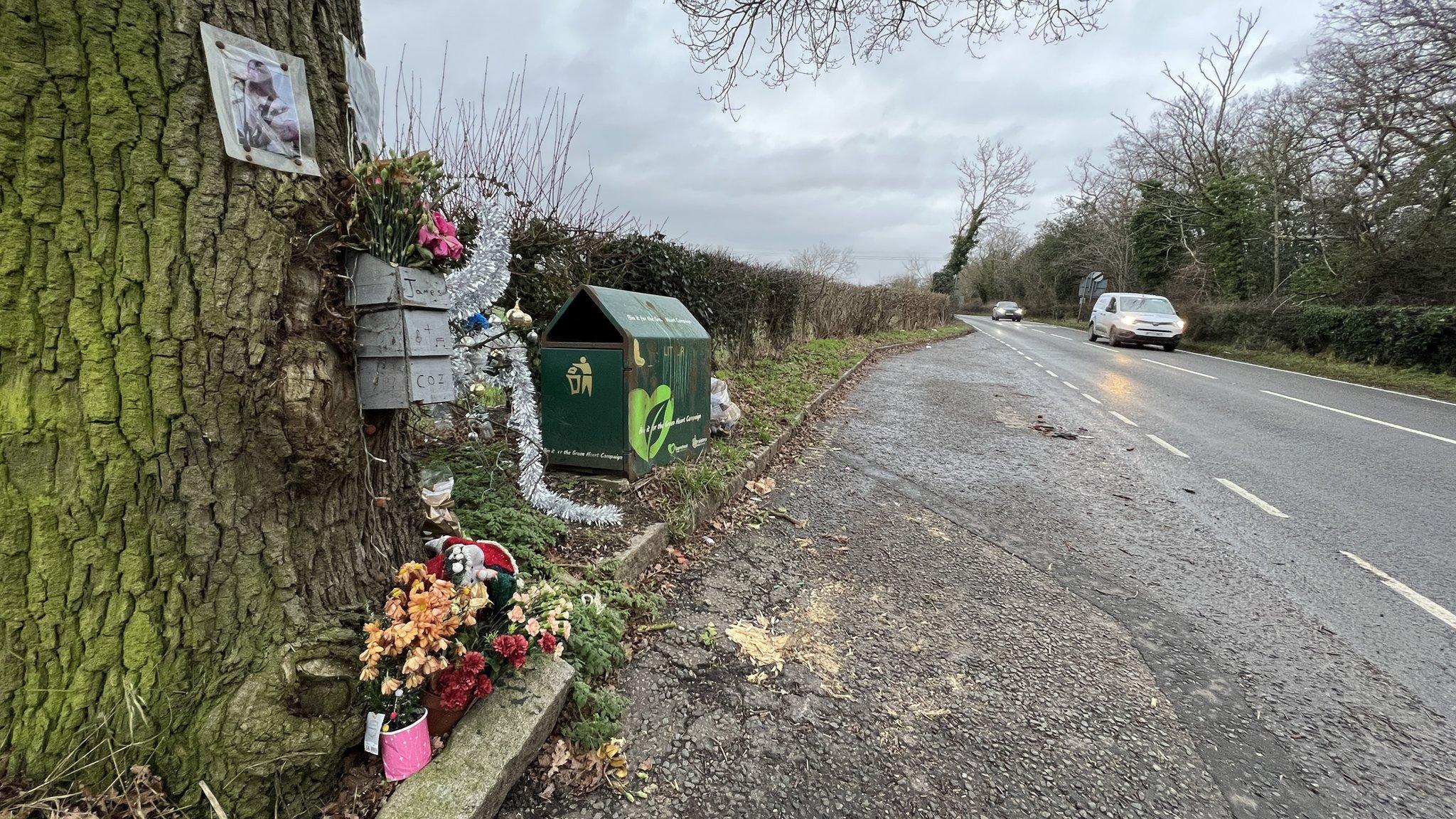
The road between High Garrett and Gosfield has seen several road traffic incidents, including one in 2014 when three people died
Mr Porter said his neighbours had even explored the possibility of buying a car to park on the road to create a traffic-calming measure.
"Obviously we don't want to have to do it because if something happens, it'll then be on our conscience," he said.
"But it's getting to the stage where it's either that, or it could be one of our children. We're left with very limited options."
'Reasonable speed'
Halstead councillor Chris Siddall, who chairs the local highways panel, says he sympathised with the residents and had recommended to Essex County Council that the speed limit should be reduced to 40mph.
"It's really important that speed limits feel right for the motorist," he said, adding that "if people feel the speed limit isn't correct, they'll ignore it."
"Forty miles an hour does feel a reasonable speed to drive along that section of road."
A spokesperson for Essex County Council says the authority conducts a full investigation following any fatal collision to establish if there were any highway-related contributory factors, as well as reviewing the previous 10 years of collision data.
They said added that any local safety concerns could be raised and brought to the attention of the local highways panel.
Braintree District Council told the BBC it had not received a planning application or any enforcement inquiries in relation to the imitation camera, and was unable to say if the structure required planning permission or not without viewing it first.

Follow East of England news on Facebook, external, Instagram, external and X, external. Got a story? Email eastofenglandnews@bbc.co.uk, external or WhatsApp 0800 169 1830
- Published24 November 2022
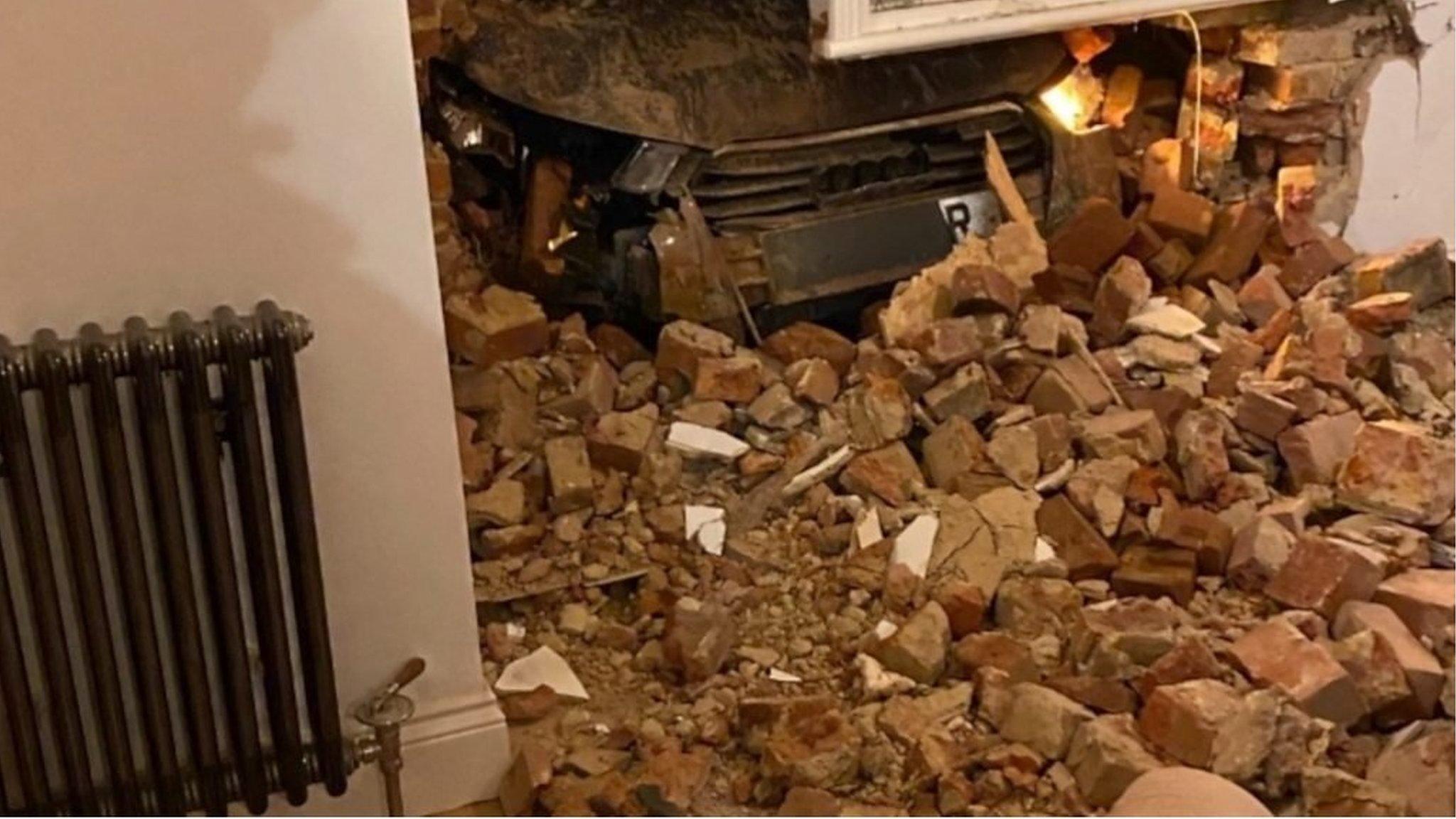
- Published6 November 2019
